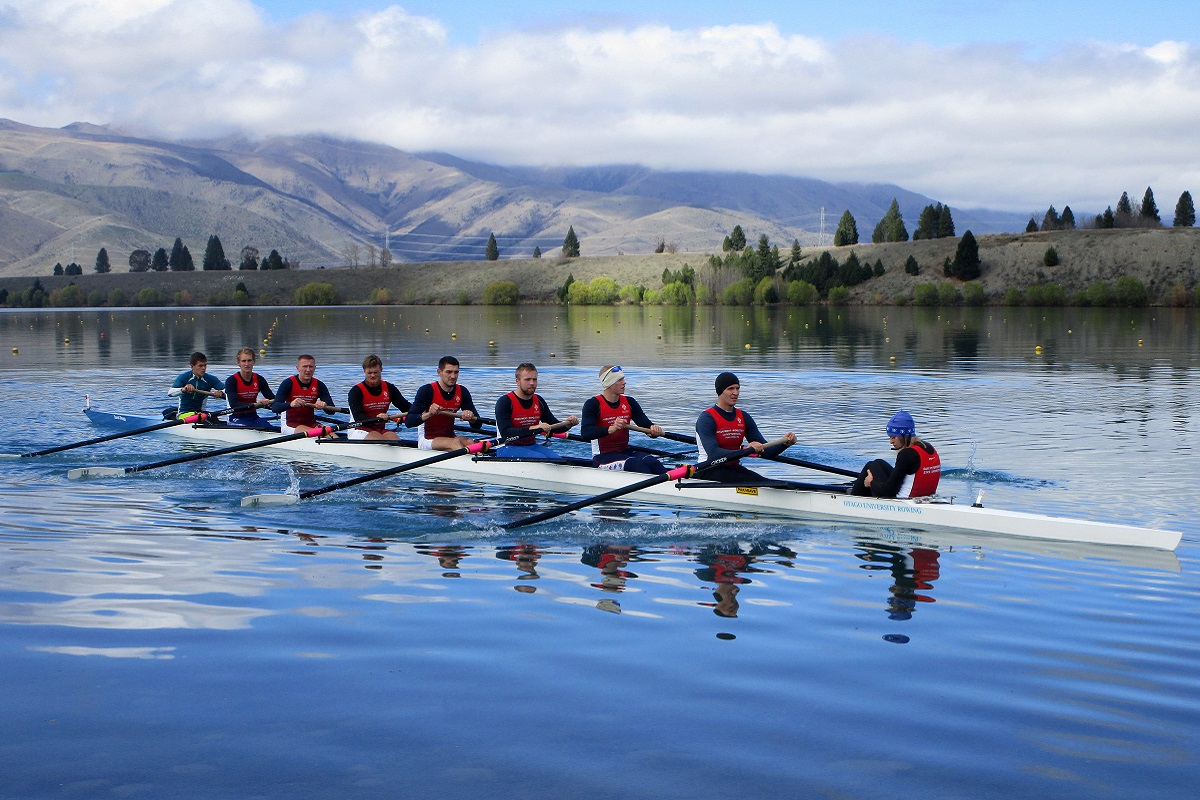University rowing team on the lookout for new oarsmen (and oarswomen)

There is now an opportunity for all students at the University to join the St Petersburg University Rowing Team and take part in national and international competitions: as part of the University indoor competitions, new members were recruited to the team, and a master class on rowing machines was held.
The primary goal of the competitions, however, was not so much to select the best athletes to add to the team as to acquaint students with rowing and to suggest that they try their hand at it. As Svetlana Namozova, the Head of the Division of Physical Culture and Sports at St Petersburg University, explained, student rowing is a way of life. “The University is now trying to set up its own rowing campus where the students will come not only to practice but to hang out together when they have a break from their studies. It will be a kind of club. This is where we will invite teams from other universities for informal get-togethers and special events,” she said. “According to the statistics, roughly 60 percent of third-year students go in for sport on their own, outside of the University. After they finish school, kids often feel that physical education is not a very important subject, but along about the third year they suddenly become motivated to keep fit. Students start going to fitness clubs, but meanwhile they can work out at the University.”
Rowing is an Olympic sport that involves practically all of the muscles in a person’s body, so rowing machines have become quite popular at fitness centres and in CrossFit. They are even used for training soldiers.
But nobody should get discouraged if, even with an athletic build, they do not achieve spectacular results right away. Skill, after all, comes from training. In the history of the sport, there have been more than a few examples when a person has got carried away by rowing during their student days and gone on to take part in the Olympics. The renowned Vladimir Mityushev, for example, took up rowing when he was a student at the Astrakhan Maritime Academy, and, before long, he was participating in school Olympics, nationwide competitions and world championships. Then, in 1996, he took part in the Olympic Games in Atlanta.
At the moment, the University Rowing Team is gearing up for two important competitions: the winter stage of the Student Rowing League and the annual meeting with the University of Otago in New Zealand. Over the past year, the St Petersburg University oarsmen have managed to make significant progress: during last year’s winter season they ranked 35th among Russian rowing teams, but this year they have shot all the way up to fourth place. Nonetheless, their new coach Ilya Kostilyev – a last year’s graduate of the University and member of the Russian National Rowing Team – is confident that his rowers still have something to strive for. In last September’s regatta, the team succumbed to the Otago oarsmen, so next year they need to win in order to even the score. “We aren’t screening potential rowers but enlisting them. We’re trying to attract more students and so we can develop rowing at the University,” Mr Kostilyev commented. “It’s a good thing to try out a new sport. Both the students and the coaching staff need to be patient and get through this transitional period, and if the new rowers take to the new discipline, then we can continue our training.”
This is our first attempt to enlist all comers, and if it proves to be successful, then we will do this more often. The more students do rowing at the University, the greater the competition will be for a place on the St Petersburg University team – and, by extension, the better the results will be.
Ilya Kostilyev, the coach of the University team and a member of the Russian National Rowing Team
Students from all fields are invited to pick up a new sport and compete for a spot on the team. The basic requirement for future oarsmen is that they be healthy. Those who engage in cyclic sports, especially swimming and skiing, will have an advantage – they will already be used to the stress load. Students do not have to be involved in the field of sport to possess the right parameters. There are all sorts of students on the University’s Rowing Team – psychologists, Orientalists, sociologists and economists.
All told, 170 people took part in the competitions, and 22 students were invited to a practice of the University Rowing Team. Not only young men but also young women were enlisted, since the University team plans to form a women’s eight. During the course of the academic year, similar competitions have been planned at other locations in the University in conjunction with the Student Rowing League.

